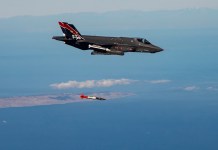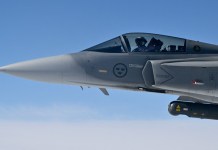The troubled relationship between India and China has been easing as the Chinese soldiers have started withdrawing from the Galwan area of eastern Ladakh where the two sides were locked in a standoff since the last few weeks.
“We have also reciprocated and moved back our troops,” said a top Indian government official. “Status quo ante has been restored at three standoff locations. The process is on at the fourth,” the official added.
India-China Border Clash: India Has 2 Options – Accept Losses or Counter China: US Experts
India-Australia Ties
Though China still suspects Australia to become a key player in India’s bid to confront China. According to China’s state-led Global Times (GT), an enhanced partnership between Australia and India, especially in terms of military cooperation, will bring about a new change in the strategic pattern of the entire Indo-Pacific region.
It further stated that such changes are expected to shape a confrontational atmosphere in the region, jeopardizing peace and stability.
What Musharraf Could Not Achieve Against India, China Is Trying To Do It For Pakistan: Experts
This comes at a time when India and Australia have ramped up their bilateral relations to a Comprehensive Strategic Partnership and have concluded nine arrangements including Mutual Logistics Support for their militaries.
Amid rising Chinese aggression in the Indo Pacific region, New Delhi and Canberra have resolved the Shared Vision for Maritime Cooperation.
“India and Australia have an enduring interest in a free, open, inclusive and rules-based Indo-Pacific region. They have a shared interest in ensuring freedom of navigation and overflight in the Indo-Pacific region, and maintaining open, safe and efficient sea lanes for transportation and communication.”
How Russian Air Force Jammed Turkish F-16 Fighter Jets Over Idlib, Syria?
According to GT, it is set against the backdrop of escalating border tensions between China and India, which intensifies friction between Beijing and Canberra. Some analysts regard this move as a joint effort between India and Australia to counter China.
The editorial states that China has had some frictions with both counties recently. Australia, which relies on the US for security and China for the economy, has always struck a balance between the two sides. However, GT claims that Canberra has coordinated with Washington to attack Beijing.
State-run GT alleges that after the outbreak of the novel coronavirus, India seems to be worrying that its international status is declining while China’s influence is rising, especially in regions such as South Asia and Africa where India wishes to play an influential role.
Chinese Military Base In The Pacific Near Australia Could Be A Nightmare For The US & Allies
It further insists that with escalating tensions between the two neighbouring countries, India is trying to add leverage in boosting its relationship with the “West”.
“Since US President Donald Trump introduced the Indo-Pacific Strategy in 2017, his administration has been trying to rope India into this strategy. Trump’s recent move in inviting Modi to participate in the G7 summit is another display of his strategic intentions,” wrote GT reporter Lu Yuanzhi.
He further added that India has been cautious with the US’ Indo-Pacific framework and has been reluctant to become a pawn of Washington’s game of containing Beijing.
As earlier reported by EurAsian Times, the decision to allow Australia to be a part of the annual trilateral Malabar naval exercise involving India, Japan and the US comes at a time with rising China’s aggression in Ladakh, the South China Sea and the Strait of Taiwan.
“Their common interests in dealing with rifts with China do play a role in urging the two countries (India and Australia) to coordinate strategically, which deserves China’s vigilance,” stated Lu.
It concludes by saying that India, as a power with global influence, will not fully coordinate with the US’ strategic pace, adding that India has been accentuating its diplomatic independence. It is a matter of contention whether or not Australia and India will coordinate their strategies to confront China.




